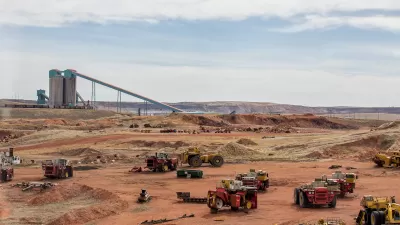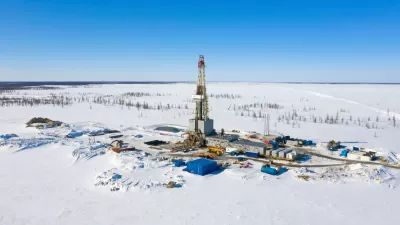Dueling pieces in Foreign Policy and the Christian Science Monitor come to completely different conclusions on the connection between the great Indian blackout of July 31 and the country's reliance on coal.
Coal is responsible for almost 70% of India's electricity production - that much is agreed upon. But is the problem that there is a shortage of coal to supply the power plants, or does India over-rely on coal?
Writing in Foreign Policy, Charles K. Ebinerger and Govinda Avasarala of Brookings Institition's Energy Security Initiative, see a 'crippling coal shortage'.
"As a result of the (coal) domestic production shortfall, India has had to rely on more expensive imported coal. However, because Indian states sell electricity at low, heavily regulated rates, electricity generators have been largely unable to pass on the higher cost of imported coal to consumers. The ultimate result is a crippling shortage of coal."
Rebecca Byerly, correspondent for the Christian Science Monitor, focuses on the environmental, health, and social devastation the coal industry has brought to the Jaintia Hills of northeast India in "India's big power blackout: Why coal hasn't been a savior".
"It looks like something out of an apocalyptic movie: mountains of tar-black coal, polluted orange rivers, and seemingly bottomless holes plunge more than a 100 feet beneath the earth's surface."
She points to a disadvantage of coal in meeting peak power surges.
"Coal operates at a steady output 24 hours a day - it's baseload," says Mr. Justin Guay, the Washington Representative of the Sierra Club International Climate Program. "But coal can't be ramped up quickly to accommodate quick peak surges in demand."
Yet coal reliance need not result in power outages, as NPR illustrates in its comparison of India to another huge, coal-reliant emerging economy.
In Power Outage Exposes India-China Contrasts, NPR's Julie McCarthy in New Delhi and Frank Langfitt in Shanghai explain "the different attitudes toward (energy) infrastructure" and why Indian-style energy outages are not tolerated in China.
Text and audio available.
Thanks to Sierra Club Hitched
FULL STORY: Emerging Power Crisis

Alabama: Trump Terminates Settlements for Black Communities Harmed By Raw Sewage
Trump deemed the landmark civil rights agreement “illegal DEI and environmental justice policy.”

Study: Maui’s Plan to Convert Vacation Rentals to Long-Term Housing Could Cause Nearly $1 Billion Economic Loss
The plan would reduce visitor accommodation by 25% resulting in 1,900 jobs lost.

Planetizen Federal Action Tracker
A weekly monitor of how Trump’s orders and actions are impacting planners and planning in America.

Wind Energy on the Rise Despite Federal Policy Reversal
The Trump administration is revoking federal support for renewable energy, but demand for new projects continues unabated.

Passengers Flock to Caltrain After Electrification
The new electric trains are running faster and more reliably, leading to strong ridership growth on the Bay Area rail system.

Texas Churches Rally Behind ‘Yes in God’s Back Yard’ Legislation
Religious leaders want the state to reduce zoning regulations to streamline leasing church-owned land to housing developers.
Urban Design for Planners 1: Software Tools
This six-course series explores essential urban design concepts using open source software and equips planners with the tools they need to participate fully in the urban design process.
Planning for Universal Design
Learn the tools for implementing Universal Design in planning regulations.
Caltrans
Smith Gee Studio
Institute for Housing and Urban Development Studies (IHS)
City of Grandview
Harvard GSD Executive Education
Toledo-Lucas County Plan Commissions
Salt Lake City
NYU Wagner Graduate School of Public Service





























